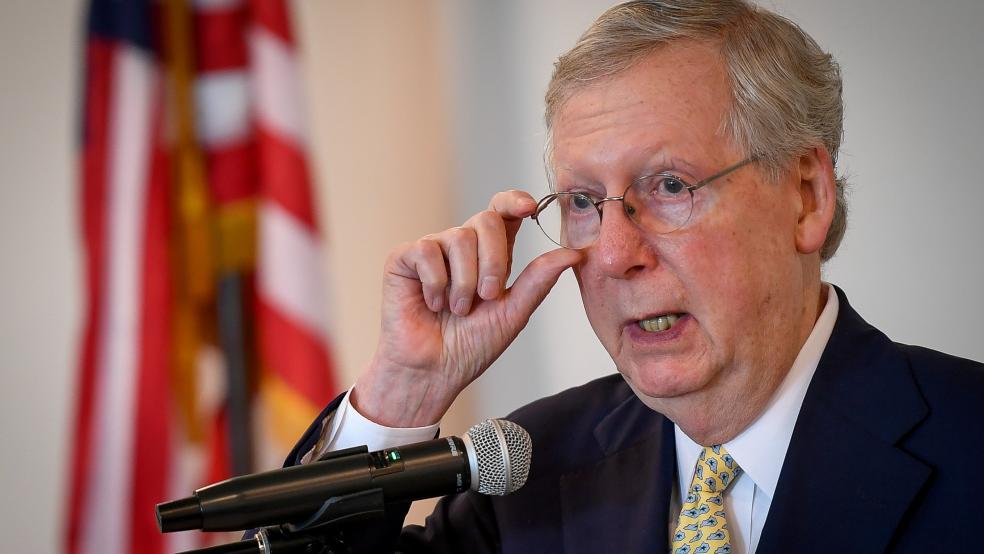Senate Majority Leader Mitch McConnell on Thursday introduced the Republican plan for the next phase of economic response to the coronavirus pandemic, setting the stage for talks with Democrats as lawmakers race to deal with the fallout from the virus.
"It is critical that we move swiftly and boldly to begin to stabilize our economy, preserve Americans' jobs, get money workers and families and keep up our fight on the health front," McConnell said Thursday. "This is exactly, exactly what our proposal will do."
In outlining the plan, McConnell said it was based on four major components:
- Help for small businesses: Senate Republicans are looking at providing “hundreds of billions of dollars” in federally guaranteed loans, with money used for “core expenses” such as payroll and rent converting into grants that don’t have to be paid back.
- Cash payments to individuals: Senate Republicans are proposing sending $1,200 in cash per adult ($2,400 for married couples) and $500 per child, slightly different than the $1,000 per adult and $500 per child pitched by the Trump administration. The direct payments would go to people earning up to $75,000 a year and then phase out gradually, with individuals earning above $90,000 not eligible for assistance. But the plan reportedly would provide only $600 to poor families who don't pay federal income taxes.
The idea of direct payments reportedly has generated some deep division among Republicans, with some objecting to the concept while others reportedly pushed for the lower payments to people who don’t pay federal income taxes.
- Loans for industries affected by the virus: McConnell said the industries affected had not brought this trouble upon themselves. “We are not talking about a taxpayer-funded cushion for companies that made mistakes,” he said. “We are talking about loans, which must be repaid, for American employers whom the government itself is temporarily crushing for the sake of public health.”
- Funding for the public health response: “Our proposal will go even further to remove barriers to care, speed innovation, fund the hospitals and health centers that will treat patients, and expand healthcare workers’ access to the tools they need, including respirator masks,” McConnell said.
What’s next: Lawmakers are racing to get something done, but this package is likely to be contentious, both within the GOP and in talks with Democratic leaders Chuck Schumer and Nancy Pelosi.
“McConnell is seeking to first build a consensus among Senate Republicans — on everything from direct payments to loans — and then will bring his proposal to Schumer to iron out the details,” Politico reports. “Senators expect those talks to last well into the weekend, and McConnell is urging lawmakers to stay close by so that the Senate can quickly vote on and pass the aid package.”
Schumer and Senate Democrats have outlined a $750 billion package of their own focused more on existing safety net programs. And House Democrats are working on another coronavirus stimulus plan, but they also have internal disagreements to sort out, with some in the party reportedly urging larger cash payments while others have pushed to further strengthen existing programs, including unemployment insurance and Medicaid.
And what’s after that: Even as lawmakers seek to quickly finalize a massive stimulus, talks are reportedly ramping up regarding a fourth legislative package that could include infrastructure spending and a payroll tax cut.





